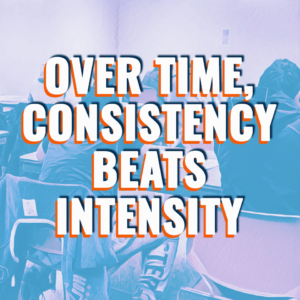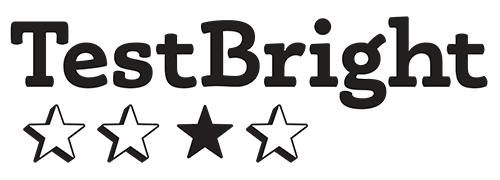 An old friend and I shared a long-running debate about whether strength or endurance matters more. Our biases were evident: she was a distance runner, while I lifted weights. Nonetheless, I now present my formal concession.
An old friend and I shared a long-running debate about whether strength or endurance matters more. Our biases were evident: she was a distance runner, while I lifted weights. Nonetheless, I now present my formal concession.
Of all the rites of passage for tutors, none resonate as keenly as the eleventh hour message from a desperate client with a critical exam or deadline looming. We’ve all gotten them, right? Sure, these oblivious callers say, others may need months to prepare for this test or write that thesis, but we’ll WORK EXTRA HARD, as if effort was the only issue.
Deep thinker Shane Parrish at Farnam Street reminded me in his own newsletter both of last-minute students and my own misguided confidence about being able to overpower challenges:
The longer the time frame for results, the less you need intensity and the more you need consistency.
Consistency isn’t simply willpower, which comes and goes. Consistency is doing it when you don’t feel like doing it.
Education done right embodies the leverage consistency delivers. Learners who show up day after day, month after month, year after year, can accomplish magical feats like learning new languages or mastering complex skills. If you can’t play guitar at all today, you almost certainly will not be able to strum to your (or anyone else’s) satisfaction mere weeks from now. With, however, years of patience, practice, and coaching, rock stardom may still be a possibility.
Consistency applies to us as tutors as well. You don’t become a transformational educator overnight, but rather over many, many long days of direct instruction. You also cannot build a thriving practice or generate legendary word of mouth after one burst of marketing. If you are in education–or anything else–for the long haul, endurance beats strength every time.
As educators, we recoil when Last-Minute Larry calls two weeks before the SAT, history midterm, or AP Physics exam or laugh at the futility of throwing good time after bad in hopes of improbable success. I still take those students when our schedule permits, in part because I still believe that intensity of effort can sometimes work wonders in the short term. But I also appreciate the opportunity to teach the power of consistency as well: “Sure, we’ll help you prep for the September ACT, but you need to register for the October one as well. We’ll work up to that date for a chance at an even better score.”
Real success is a marathon, not a sprint. This truth applies to us as educators as surely as it does our students.
— Mike Bergin
Tutor Tastemaker
 Vida John is a math coach based in California (but working online), who focuses on teaching math curricula published by Art of Problem Solving (all levels) and preparing students for math contests like AMC and MathCounts.
Vida John is a math coach based in California (but working online), who focuses on teaching math curricula published by Art of Problem Solving (all levels) and preparing students for math contests like AMC and MathCounts.
What are three resources your practice depends on?
- ArtofProblemSolving.com
- Tests and the Rest podcast (I learn so much from your interviews!)
- Limnu online whiteboard (I couldn’t find anything cheaper that has the features I need, and each student gets their own whiteboard with their own URL) + cheap Wacom tablet/stylus
What is one more resource you strongly recommend?
Green tint engineering pads like this one. The quad ruling is printed on the back so it’s there when you need it, but also easy to ignore. It can also be used for virtue signaling to other nerds.
What is one insight every tutor should hear?
People use price to judge quality, so don’t be afraid to charge more, especially if you are busy. You’ll get higher quality customers who value your work and are paying attention. Some parents will decline your higher rate, so you need to become accustomed to some rejection, but it’s better to work less for more money than the other way around.
Tutor Tips, Tools, and Thoughts
High-Dosage TuTORING: A Proven Strategy to accelerate student learning
I appreciate any prescriber who assigns large doses of tutoring as a cure!
Learning How to Learn by Barbara Oakley [Actionable Summary]
Why this Guide for Kids and Teens should be read by adults too. And if you are a fan of Barb Oakley, you’ll love my conversation with her about Fast and Slow Learners.
Study focuses on strategies for achieving goals, resolutions
Who knew that sending weekly updates to a friend (or maybe tutor) could influence productivity?
Hope and progress for gifted education
The Fordham Institute will be monitoring the inconsistent progress of gifted education in America.
$1 Million in Annual Revenue, Zero Full-Time Staff: How I Run a Lean, Profitable, One-Woman Online Business
Note the careful distinction between employees and contractors.
Did you enjoy this issue of Tutor: The Newsletter? Get the next issue right in your inbox by subscribing below:
